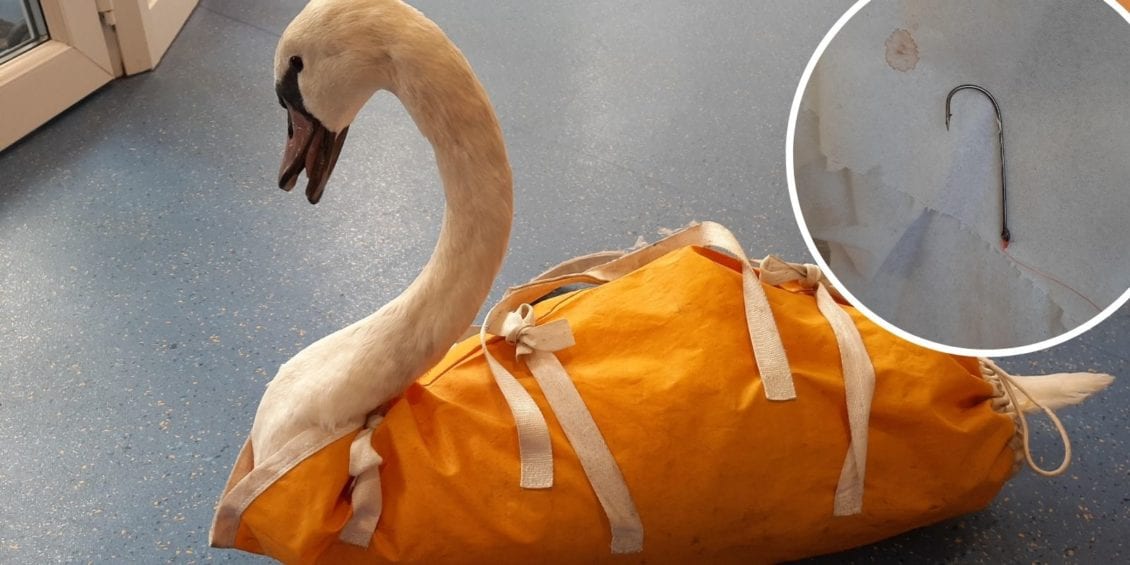The RSPCA has raced to the aid of a swan in Mumbles who was struggling after a fishing hook became embedded into her skin.
Officers from the animal welfare charity were alerted after members of the public saw the swan unable to stand properly and only moving her head, on Devon Place in the Mumbles area.
RSPCA inspector Neill Manley found the swan on the beach on Monday (1 February) and it was soon established that the swan’s condition and demeanor were impacted by a barbed fishing hook, more than two inches in length, deeply embedded in her skin.
Staff from the charity say the incident serves as a reminder as to the dangers fishing litter can pose to animals – in particular wild birds.
The bird was soon transferred to Tinker’s Hill Swan Rescue for ongoing rehabilitation and has subsequently undergone a veterinary procedure to remove the fishing hook.
Inspector Manley said: “We are grateful to the members of the public who spotted this distressed swan and brought her plight to our attention.
“She seemed unable to stand, and we soon established that a fishing hook embedded deep into her skin was causing her real issues.
“Thankfully, the swan was transferred to our friends at Tinker’s Hill Swan Rescue, and she has since undergone an important veterinary procedure to remove the hook.
“While we know most anglers are very responsible, sadly this swan’s plight suggests fishing litter was left and not cleared up. By failing to do the right thing, people leaving fishing litter behind are putting wildlife at risk – and wild birds are so often impacted
“RSPCA Cymru urges any anglers to follow the Angling Trust’s Take 5 campaign and make use of the recycling scheme to ensure their waste is always disposed of carefully.”
Top tips for anglers include:
-
Take old fishing line and spools to recycling points in local tackle shops or fisheries. Your nearest recycling point can be found on the Anglers National Line Recycling Scheme (ANLRS) website. Alternatively, old fishing line can be posted to the address on the ANLRS page.
-
Be aware of surrounding trees – discarded line caught in foliage causes problems for wildlife.
-
Don’t leave bait unattended – always remove it from the hook and put it in a safe place.
-
Use a bait box.
-
Safely dispose of any litter you see, even if it’s not your own.








Leave a Reply
View Comments